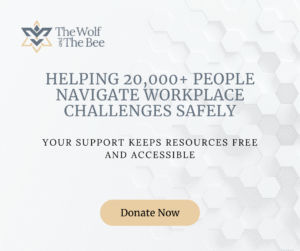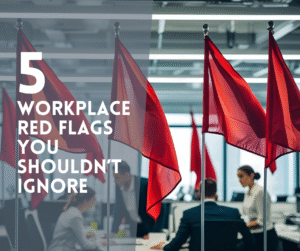Seven Risks to Be Aware of When Dating in the Workplace

Once upon a time, there was a designer and an architect. They worked together and created beautiful designs. They began to develop feelings for one another. One day they decided to start a personal relationship, confident they could keep their romance private. Their relationship was discovered and everyone on their teams watched nervously as their dating in the workplace drama began to unfold.
There are many ways this story could go. What the architect and designer didn’t realize when they started their office romance, was the risks to their professional relationship and careers, and the impact it would have on their coworkers, clients, and employer.
According a Reboot Online survey of 2,446 participants
Before you engage in an office romance, whether it becomes serious or is just a two-date affair, make yourself aware of these seven risks.
Risks When Dating in the Workplace
1. Be aware of your company policies
Some companies have a policy regarding workplace romances. Your company has this policy in place to protect the company from liability and harassment complaints.
- Check your employee handbook and review the policy on dating in the workplace.
- Many companies do not allow dating your subordinate/boss.
- Some companies require you to disclose a workplace relationship. Pay attention to when, how, and to whom you should disclose a relationship.
- Make a note of all your company policies and procedures and follow them. If you don’t, your company may have grounds to terminate you.
- Make sure to document your disclosure details.
2. Beware of all power imbalances that exist between you and your romantic partner
The most obvious power imbalance is dating your boss or your subordinate, but there are other stealthy power imbalances to consider:
- Titles – Who has a higher-ranking title? If you don’t have the same title or if one title is graded higher, even if you work in different departments, a power imbalance may still be in play. If the company is forced to choose they will likely side with the person with the higher title. Also consider that the higher-ranked person will have greater access to superiors, and that could mean people in the company with greater clout advocating for them.
- Longevity – Who has been with the company longer? The person working at the company longer will have access to more information, people, and projects and will have had time to develop deeper relationships and knowledge. Companies will favor keeping employees who have been with the company longer, especially if they are more costly to replace.
- Department value – Working for some departments carries greater weight than others. Think about those working in the sales department versus those working in customer service. If you or your potential dating partner are a successful salesperson, it is likely the company will be partial to the salesperson over the customer service employee.
- Access – Does one romantic partner have more access to people with greater clout? Do they have more opportunities at the company? This doesn’t just apply to people with high-ranking titles. For example, if family members work on a factory floor, the company may give preference to the dating partner with more family working at the company to minimize fallout and keep productivity higher.
- Pay – Does one dating partner make more money than the other? This is a good indication a power imbalance exists, because the company likely values the work of the higher-paid person more than the other.
3. Consider the perceptions of others
Your boss, co-workers, and colleagues may react unfavorably toward dating in the workplace and create tension for you and your team.
- Your co-workers may accuse you of taking advantage of or creating an alliance that is not beneficial to them or the team.
- You may experience rumors, backbiting, and innuendo from colleagues.
- You may be accused of “sleeping your way to the top.”
4. You may lose opportunities you are qualified for
- You may be sidelined for promotions and opportunities to maintain the appearance of equity.
- You may proactively (sometimes even unconsciously) opt-out of opportunities and promotions so you don’t appear to be using your relationship to “get ahead.”
5. You may lose your job
You may lose your job or feel forced to find a new job if the relationship sours.
- If you are forced to leave your job you don’t just lose your job, you also lose seniority, future opportunities, vested benefits, and more.
6. You may lose protection for harassment and discrimination claims
- If harassment occurs after your relationship ends, you will have a greater burden of proof if you decide to file a complaint.
- Your complaint could be dismissed by your company even if it is valid because the boundaries are blurred between workplace behavior and personal behavior.
- If your relationship becomes coercive, your options for protection from your company become limited.
7. You have all your eggs in one basket
- If your relationship progresses, both you and your partner are more dependent on the success of the company. If the status of your company changes for the worse, both of you have less security and your livelihoods may be at risk.
When it comes to dating in the workplace, be aware of the seven risks to avoid or prepare for potential land mines. And review our next blog post: 12 Ways to Protect Yourself When Dating in the Workplace, for ways to protect your career, yourself, and your professional relationships.
Have you had a workplace romance? What problems did you encounter? How did you protect yourself, and what was the outcome?


